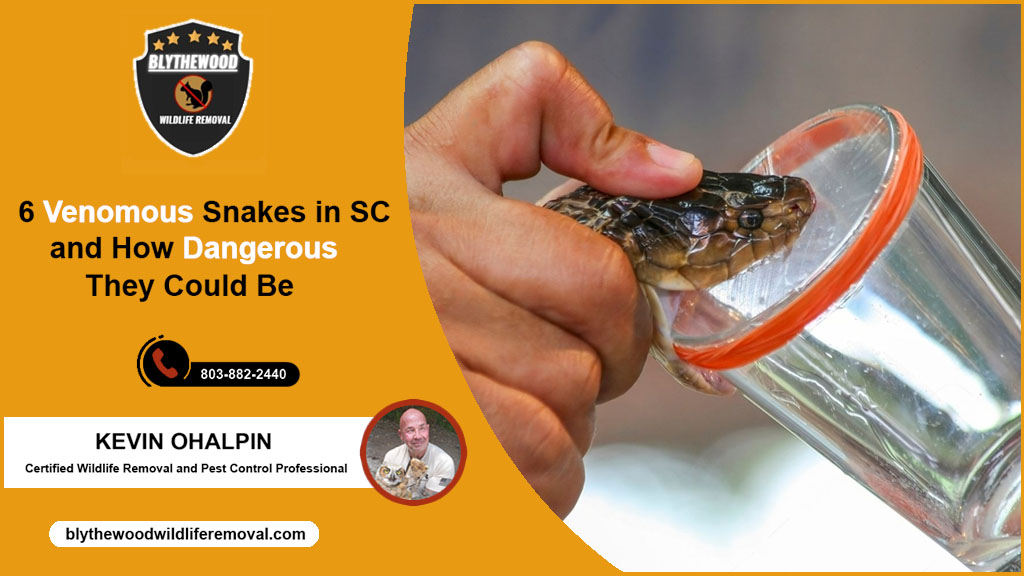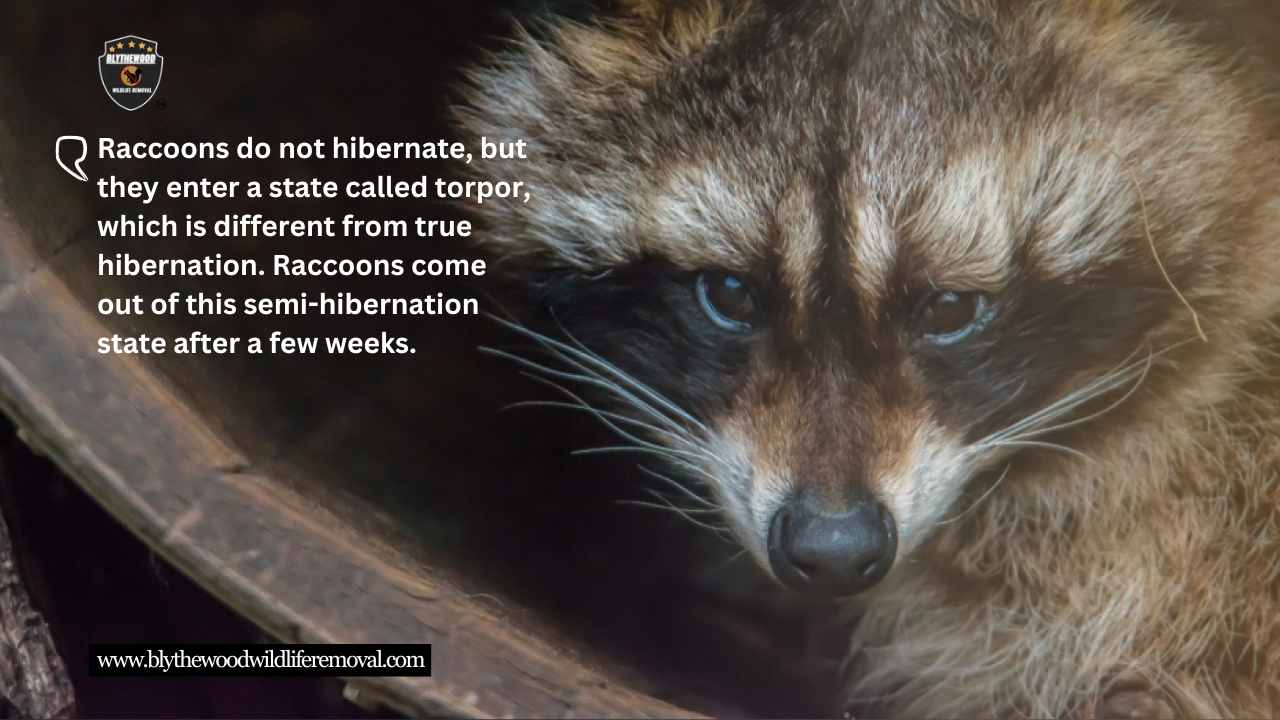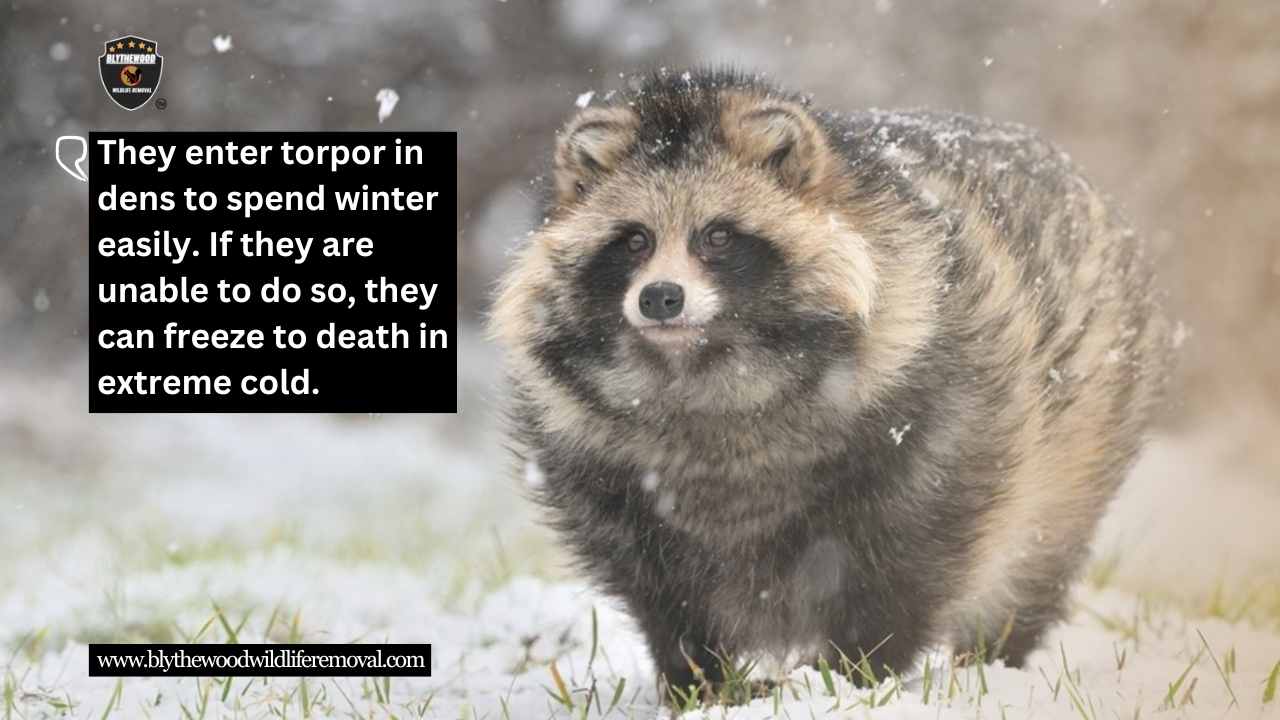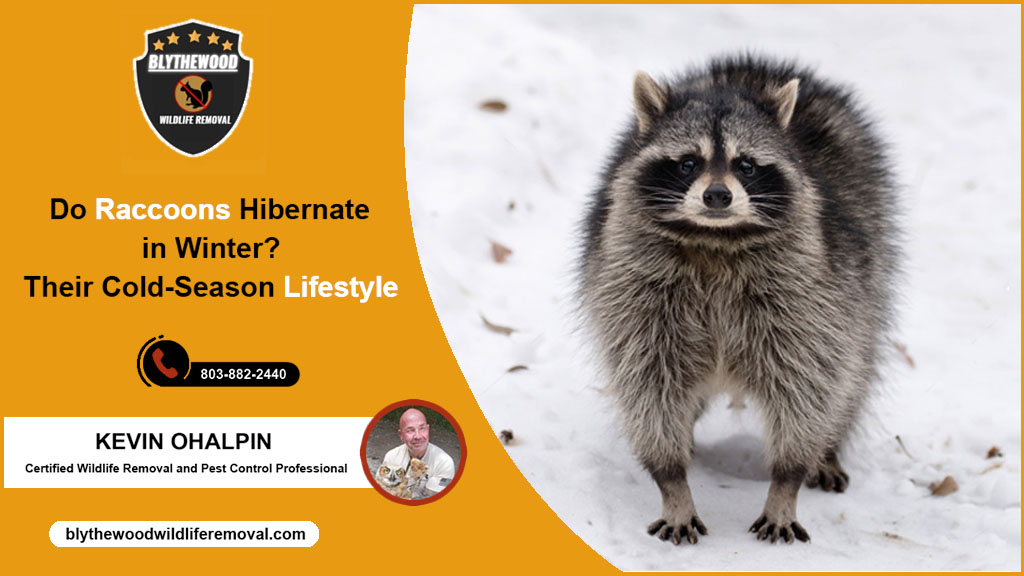
6 Venomous Snakes in SC and How Dangerous They Could Be
October 24, 2024
Raccoon in the Backyard at Night? What to Do?
November 11, 2024Do raccoons hibernate in winter? The short answer is “No,” but the topic of raccoon hibernation is complicated.
Raccoons are not true hibernating creatures, unlike bears, bats, Fat-tailed Dwarf Lemurs, and other proven hibernating animals.
They enter in a deep sleep-like state known as torpor.
Understanding the difference between hibernation and torpor is important to know how raccoons and other animals survive extreme winter conditions. We will also answer frequently asked questions in this article.
Do raccoons hibernate in the winter?

Raccoons do not hibernate, at least not in the typical way animals hibernate.
These nocturnal mammals are found across the U.S. except Alaska due to its freezing temperature.
They explore and hunt in summer, autumn, and spring. Due to winter and food shortages, they enter a torpor state to reduce their food requirement and survive freezing temperatures.
The torpor state is different from true hibernation. Raccoons come out of this semi-hibernation state after a few weeks. They eat nothing during torpor.
Torpor vs. Hibernation
Hibernation is a voluntary process where an animal significantly reduces its bodily functions. This state can last a few weeks to months.
The purpose of hibernation includes:
- Extreme Cold
- Food Shortage
- Protection
It often happens in winter but can continue even after the temperature rises.
Torpor is a semi-hibernation, a deep sleep-like state that is lighter than full hibernation.
Raccoon torpor usually lasts a few days to weeks. They only enter into torpor when it is extremely cold and return from this state when the temperature rises.
Torpor is an involuntary process that occurs automatically, while hibernation is voluntary and occurs due to an animal’s will.
How exactly does a raccoon enter torpor?
This is an involuntary action, so the raccoon has to be prepared for this condition. But what does this preparation involve?
Consuming enough food to build up fat reserves in the body is the main preparation.
Raccoons typically enter torpor when the temperature drops below 15°F or during extended food scarcity. So, when winter sets in, they intensify their search for food. They eat as much as possible to survive during torpor.
If raccoons cannot build enough fat, they could lose half their body weight in torpor.
After getting enough food, the next step is to find a safe place. Their den (shelter) could be tree holes, abandoned property, caves, hollow logs, and burrows left by other animals.
They usually look for a quiet, warm, and safe place. The change in day length, shorter days and longer nights, and temperature below 15°F works as triggers for entering torpor.
During this condition, their heartbeat and breathing rate slow down slightly. Metabolism and most bodily functions slow down too.
When raccoons come out of torpor, their body temperature starts to normalize. This state can last a few days to weeks. They do not eat, move, or do anything during this period.
With the rise of temperature, they come out of torpor. They search for water and food to regain health. If the temperature is still low, they will enter torpor again, and this may happen several times until the breeding season starts.
Their breeding season begins after winter and early spring. During this, they remain active and do not enter torpor.
Raccoon torpor provides flexibility in searching for food when the temperature changes frequently. This semi-hibernation allows them to explore their surroundings when the temperature rises.
Where do raccoons go in the winter?

Raccoons do not stay in one shelter for long; they frequently move to new ones.
In winter, they become less active and look for places to seek shelter.
They are excellent climbers and explorers, so finding a suitable place is not complicated. In urban areas, raccoons may find shelter in crawl spaces, attics, roofs, and chimneys. They can pass through small openings and holes, 4 inches wide too!
They can eat almost everything, including but not limited to small animals, birds, garbage, animal food, nuts, seeds, insects, mammals, and dead animals. Food becomes scarce for them in winter.
They find a safe place for torpor to spend winter easily. If they are unable to do so, they can freeze to death in extreme cold.
If raccoons love a place, they often come back to spend some weeks or months there. This often happens in mating season.
How to keep raccoons away from your house?
To identify a raccoon den, look for small holes, droppings, strong odor, and scratch marks on furniture. They often chew wire insulation, cause property damage, and urinate.
Raccoons have a good sense of smell. They can enter your house in search of food. To keep them away, you can try some techniques to reduce interaction with them and save your house.
Raccoons are scared of dogs (especially aggressive ones), bobcats, coyotes, and the Great Horned Owl. If you have any of these animals in your house, raccoons will likely stay away.
Alternatively, there are some smells that raccoons hate. You can use magnesium sulfate, peppermint oil, onion, chili pepper, ammonia, vinegar, garlic, and Epsom salt to deter them.
Should you call for help?
Raccoons often carry rabies, which can be deadly to humans. So, keeping raccoons away from your residence is a serious concern.
Handling them yourself could be dangerous as you may get rabies after being bitten by female raccoons who fiercely protect their kits. If you feel their presence, call us quickly for help. We are experts in wildlife removal and pest control.
This is the season of raccoon torpor when they look for places to seek shelter. Those places could be your home! If you are in South Carolina and suspect raccoons seeking shelter in your home, we are here to ensure the safety of your pets and family.
Call us for expert raccoon removal and peace of mind!
- How to Tell if Bats Are Living in Your Attic in South Carolina - December 24, 2025
- Removing Raccoons Safely From the Attic in South Carolina - December 24, 2025
- How to Keep Squirrels Out of Your Attic in Columbia - December 24, 2025





